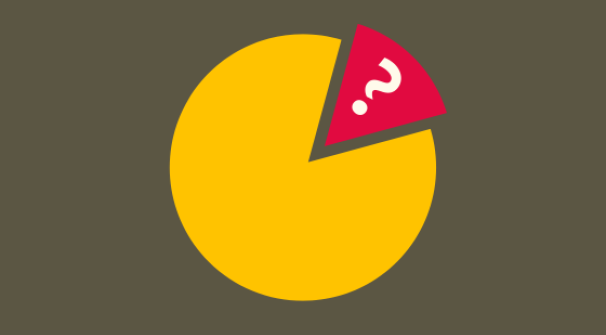What is Lent?
Lent is a significant period for many Christians worldwide, especially those within the Anglican, Catholic, and Orthodox traditions. It lasts for six weeks and prepares people for the celebration of Easter, in a similar way that Advent leads up to Christmas.
Although Advent is a time of celebration and eager anticipation, Lent is typically observed with solemnity and preparation for commemorating Jesus' death and resurrection at Easter. From Ash Wednesday until Easter Sunday, it has been customary to fast or abstain from something. Much like how we prepare for significant events in our personal lives, such as weddings or birthdays, Lent calls for us to ready our minds and hearts to remember the life, death, and resurrection of Jesus.
When does Lent start?
Due to its adherence to the liturgical calendar, the date of Lent varies each year. Lent always begins on Ash Wednesday, which consistently falls 46 days (40 days of fasting and 6 Sundays) prior to Easter Sunday.
In the UK, Ash Wednesday follows Shrove Tuesday, commonly known as Pancake Day. In other regions worldwide Shrove Tuesday goes by the name of Mardi Gras, a French term meaning "Fat Tuesday".
What does Lent mean to Christians?
Nowadays, Lent is observed by Christians all over the world in various ways. Those belonging to orthodox and traditional denominations typically follow a strict fast, which involves wearing ashes on Ash Wednesday and abstaining from meat, fish, eggs, and fats until Easter Sunday.
Others may opt to give up a single indulgence for Lent, such as chocolate, meat, or alcohol. Furthermore, it has become increasingly common for individuals to forgo other activities during this period to reorient their faith, including watching television, going to the gym, and even social media.
Many Christians also use Lent as an opportunity to engage in more intensive Bible study and prayer, using the numerous devotional books, courses and resources that are now accessible to them.
For instance, many Christians have turned to the 40acts challenge as a way of doing Lent differently; using simple daily reflections and acts of generosity as a way of putting others first during preparations for Easter.
Christians worldwide attach great significance to Sundays during Lent. While fasting and abstinence mark the weekdays (Monday through Saturday) of each of the six weeks, Sundays represent a celebratory remembrance of Christ's resurrection. Rather than fasting, Christians observe feasts to commemorate Christ's sacrifice. The fourth and sixth Sundays hold particular importance in the UK: the fourth as Mothering Sunday (Mother's Day), and the sixth as Palm Sunday.
What is Shrove Tuesday?
Shrove Tuesday, originally derived from the word "shrive" which means "absolve," was the final day before the start of Lent, during which Christians would reflect on their sins and focus on spiritual growth during the fast.
However, in addition to the purification of the soul, Shrove Tuesday also had practical implications that led to the creation of our modern-day pancake tradition.
In the past, those who observed Lent would use Shrove Tuesday to rid their homes of any items they were giving up for the next 40 days, such as meat, fish, eggs, fats, milk, and sugar. These ingredients were easily combined to create pancake batter, which is why Shrove Tuesday in the UK is now associated with making, flipping, and eating pancakes.
The overindulgence in rich foods on Shrove Tuesday also gave rise to the alternative name of "Mardi Gras" (meaning "Fat Tuesday" in French), which has grown into a carnival in Louisiana, USA.
What about Ash Wednesday?
The start of Lent is marked by Ash Wednesday, which is named after the customary practice of blessing ashes obtained from the burning of Palm branches or crosses made of Palm leaves used in the previous year's Palm Sunday celebrations.
In certain places of worship, these ashes are utilised to make a cross on individuals' foreheads, symbolising the commencement of their Lenten fast. During the cross marking ceremony, a recitation of the phrases "Repent and believe in the Gospel" (Mark 1:15) or "Remember that you are dust, and to dust you shall return" (Genesis 3:19) is often spoken.
What is Holy Week?
Palm Sunday marks the beginning of Holy Week – the last week of Lent leading up to Easter. On Palm Sunday Christians everywhere remember Jesus’ triumphant arrival in Jerusalem. Church services will often include a procession of palm branches, symbolic of the ones laid at Jesus’ feet as he rode into the city. Palm crosses will also be distributed on this day, to be kept until the following year’s Ash Wednesday as a reminder of the death and resurrection of Jesus.
Palm branches can be quite hard to come across in colder climates like here in the UK, so many people choose to use branches from native trees instead, with willow, olive, box and yew branches all being common replacements.
As Holy Week draws to a close and Easter approaches, we have Holy Wednesday, commemorating Judas Iscariot’s intent to betray Jesus; Maundy Thursday, commemorating the Last Supper Jesus shared with his disciples in which he predicts his betrayal by the following denial by Peter; and Good Friday, the day on which Christians around the world remember Jesus’ crucifixion and burial.
With Good Friday over, Christians look forward to Easter Sunday, the day on which Jesus rose from his tomb. Easter Sunday is a great time for celebrating Jesus and the new life he brings to those who believe in him, it's also a great time to consider what impact this has on our own lives.
As they entered the tomb, they saw a young man dressed in a white robe sitting on the right side, and they were alarmed. “Don’t be alarmed,” he said. “You are looking for Jesus the Nazarene, who was crucified. He has risen! He is not here. See the place where they laid him. But go, tell his disciples and Peter, ‘He is going ahead of you into Galilee. There you will see him, just as he told you.’ ” Mark 16:5-7
What resources can I use for Lent?
Created by Stewardship, 40acts is a fantastic resource to use during Lent. It's a generosity Lent challenge that became a movement of over 100,000 people on a mission to impact their communities by creating moments of radical generosity. We've curated six collections of 40acts resources for you to use and you can start anywhere you like.
Generous Newsletter
Monthly emails for supporters. Inspiration, practical tools and guidance to support the causes you love in more meaningful ways.












